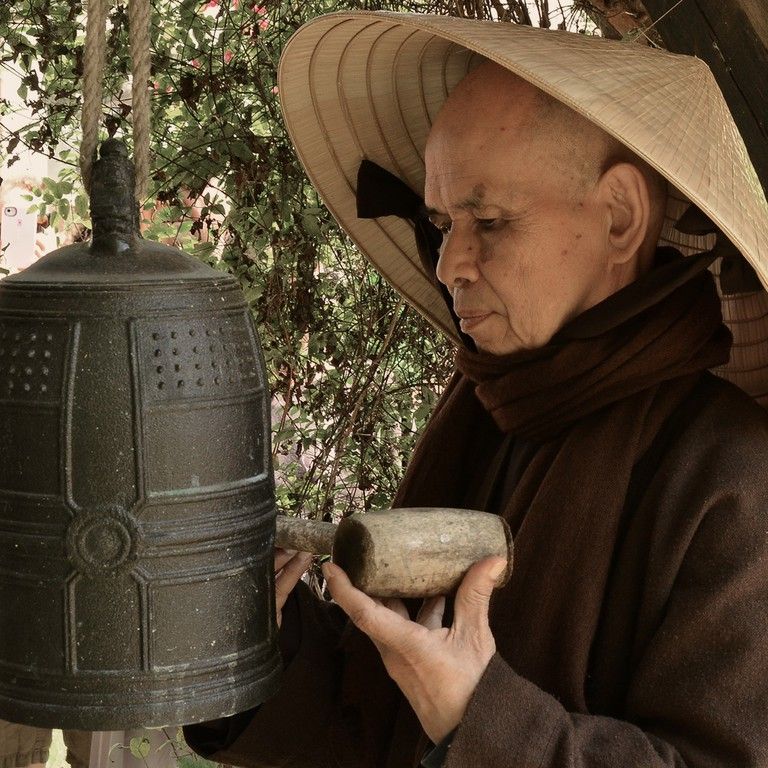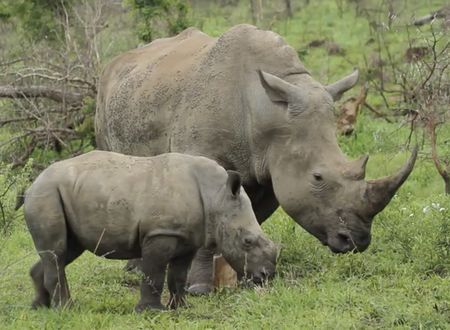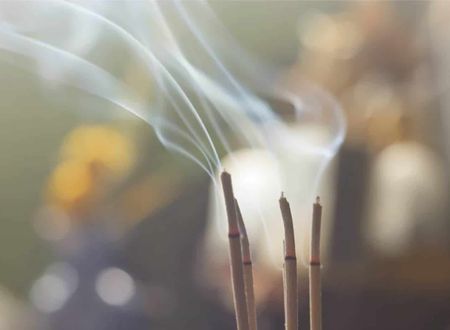Thich Nhat Hanh, a prominent Vietnamese Zen Buddhist monk and peace activist passed away at the age of 95 today. His reach within Buddhism is second only to the Dalai Lama. He is credited with bringing mindfulness to the West and has written over 100 books on the subject. Most of his life, he lived in exile in Plum Village near Bordeaux (France) for his opposition to the Vietnam War. He is referred to as an immense force for bring peace and healing in the world. Coincidently, I recently finished reading his book Silence: The Power of Quiet in a World Full of Noise (Rider, 2015).
I first came to know about Thich Nhat Hanh from Swamiji’s book The Big Questions of Life (Harper Collins, 2020). Swamiji quotes a beautiful story from Nhat Hanh’s Being Peace (Parallax Press, 2005) in which Buddha tells the story of a young trader who had lost his wife and poured all his love to his little child, who became the source of his happiness and joy. While away on business, bandits burnt his village and captured the son. The man on his return was devasted finding the charred corpse of a small child, whom he took for the body of his son. He made a pouch of the ashes and carried the bag wherever he went. Often he would sit alone and weep for hours. One day his son escaped and knocked at his father’s doors. The anguished man in confusion could only think of some malicious boy playing a cruel trick. Again and again the boy knocked, but the father refused to let him in. Finally, the son turned back and slowly walked away. Thus, the father and the son never saw each other again. Buddha finally said
“Sometime, somewhere you take something to be the truth. But if you cling to it strongly, even if the truth comes in person and knocks on your door, you will not open it.”
My reading of Thich Nhat Hanh’s Silence: The Power of Quiet in a World Full of Noise reinforced and rekindled Swamiji’s timeless teachings in me. All glories to our Divine Ma, Bhagwan, most revered Om Swamiji🙏🙏🙏. I would like to share some takeaways from the book.
- If we can carve out little moments of spaciousness while doing routine chores like sweeping and washing dishes, we open ourselves to the ultimate freedom.
- It is ok to have a wish, to have an aim, but we shouldn’t allow it to become something that prevent us from living happily in the here and the now.
- If we listen from the mind of silence, every bird song and every whispering of the pine branches in the wind will speak to us. Our true home is the island of self. Sitting in silence can be wonderfully aimless. Non-action is in fact action. It is an ‘enlightened aimlessness‘.
- Truly going home is being and reconnecting with ourselves. We are alive, but we don’t know that we are alive. We are continually losing ourselves. We can give ourselves a nice bath of mindfulness of warm spacious silence.
- Everyone of us has the capacity to love, forgive, understand and to be compassionate. If we know how to cultivate these elements within our consciousness, our consciousness can nourish us with this healthy kind of food that makes us feel wonderful and benefits everyone around us. Consciously choosing what and who we surround ourselves with is among the keys to finding more space for joy.
- Right thinking brings good fruit. When there is a problem, we need to give our mind consciousness a rest and allow store consciousness to look for a solution. Then we need to be patient. We shouldn’t let our thinking mind interfere with the process. Then one day a solution will appear as we took refuge in our store consciousness instead of the thinking mind. We need to train ourselves in the way of meditation, so we can entrust our questions and our difficulties to the store consciousness. We should have confidence it it. We can call that moment of awakening, a moment of enlightenment.
- We can also bring up refreshing images from our store consciousness to nourish us. For example, when we are in the middle of a busy city, we can recall what it is like to be in the mountain or at the seaside.
- People usually think that their ancestors have died, but that’s not correct. Our ancestors continue to live in us as they have transmitted themselves to us with their talents, their experiences, their happiness and their sufferings. They are fully present in every cell of our body. If we listen to the bell of mindfulness, peace can penetrate every cell of our body and our ancestors can join us in listening. Not only do we get to enjoy the peace and relaxation, our ancestors too get to enjoy the wonderful present moment.
It was a quite, simple end to an extraordinary life, one entirely in keeping with Thich Nhat Hanh’s love for taking joy from the humblest aspects of life. To weather the storms of life and realise happiness, he counselled always a mindful “return to the breath“.
“No mud, no lotus” says one his many brief sayings.
(Picture Source: Plum Village)









Comments & Discussion
13 COMMENTS
Please login to read members' comments and participate in the discussion.